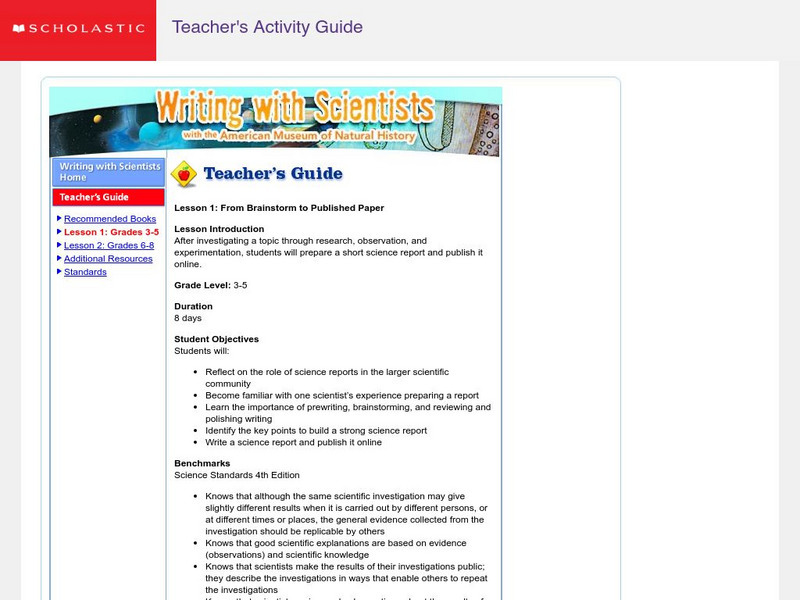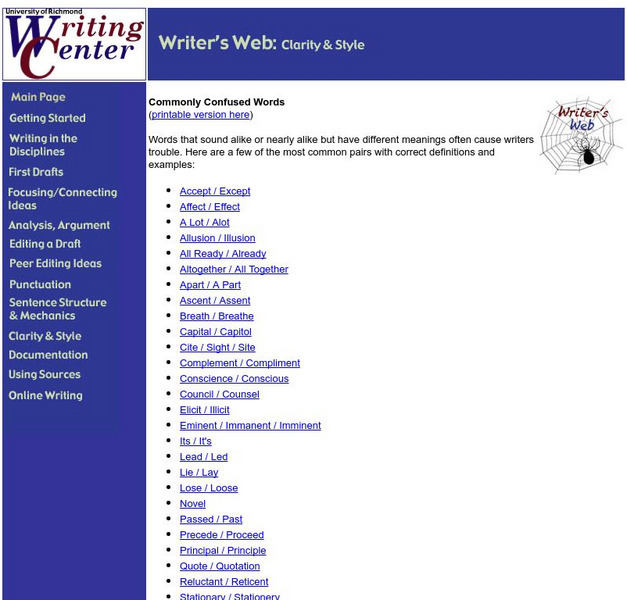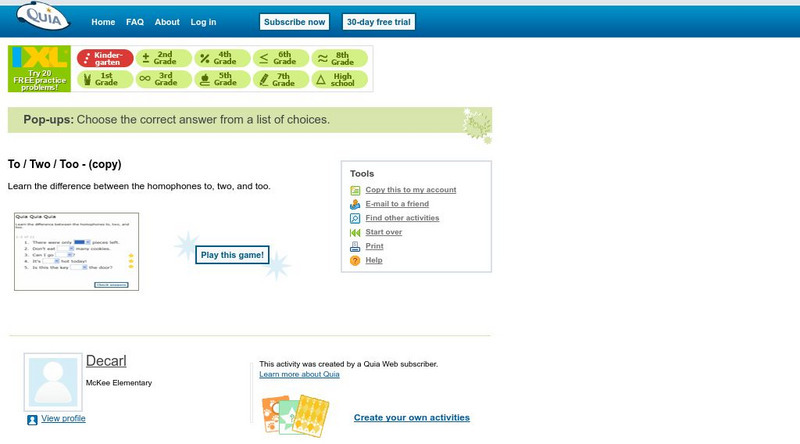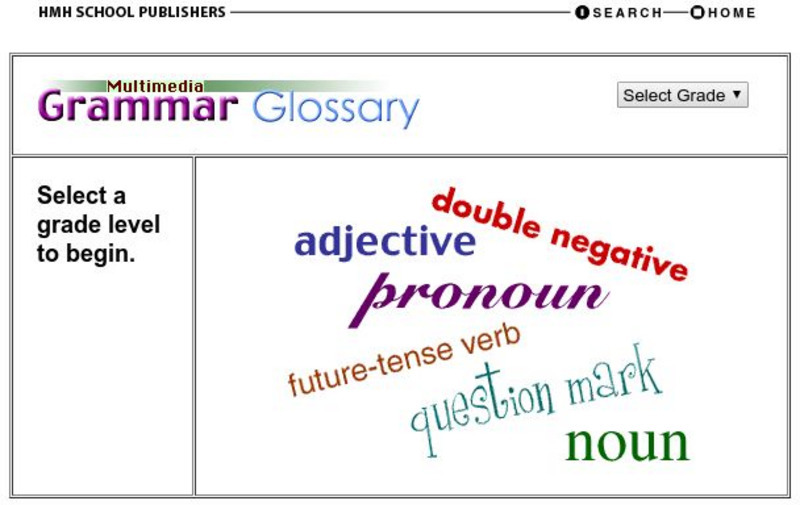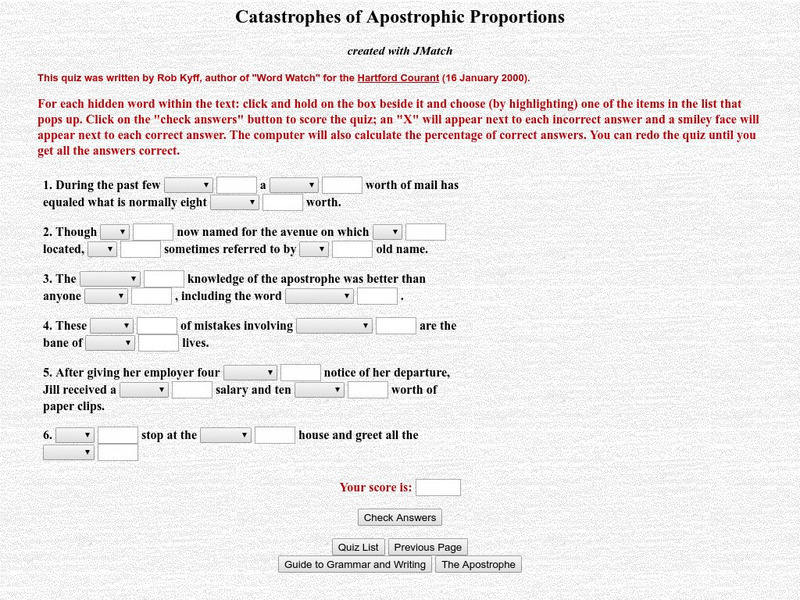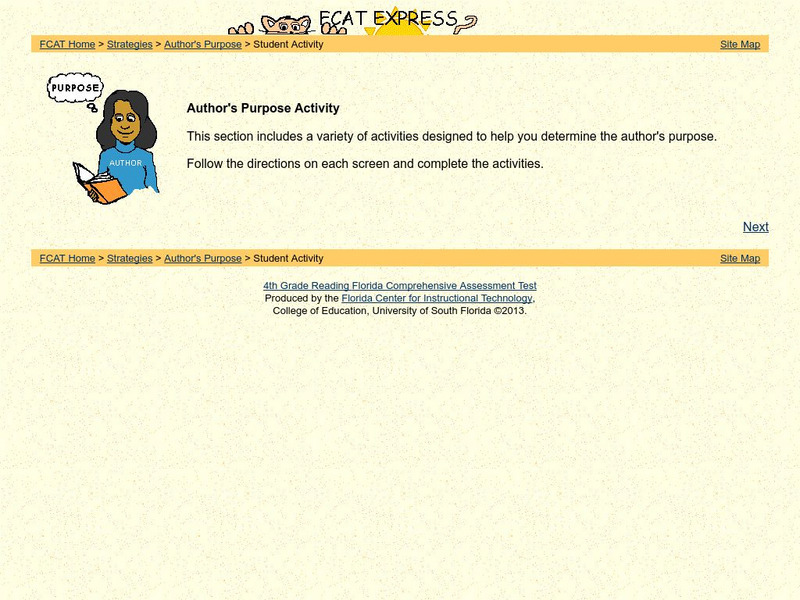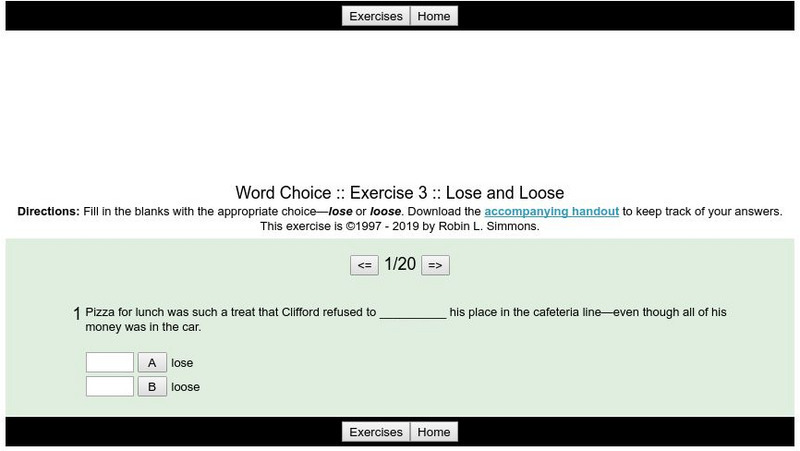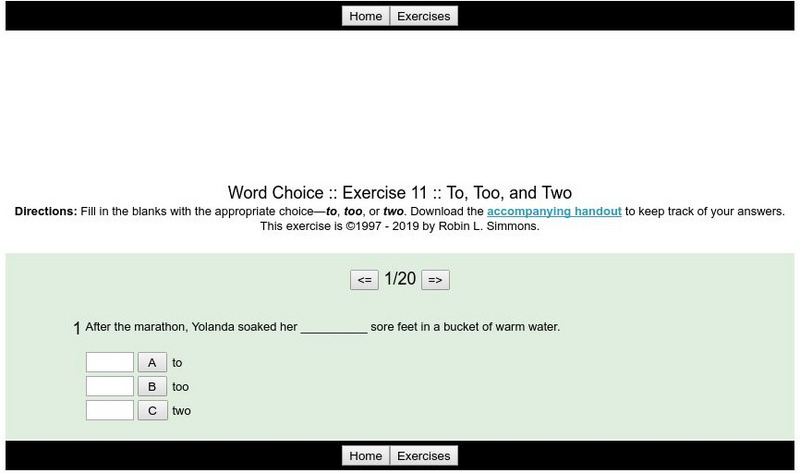Quia
Quia: Capitalization Flash Cards
This site contains a flash card game with general rules for capitalization of proper nouns and adjectives. Students can choose their difficulty level.
Scholastic
Scholastic: Writing With Scientists
After students investigate a topic through research, hypothesizing, observing, and experimentating, teachers can use this lesson to help their students prepare short science reports and publish them online. The Writing with Scientists...
University of Richmond
University of Richmond Writing Center: Commonly Confused Words
A comparison of commonly misused words in the English Language. Words are paired next to one another with their definitions as well as examples of each.
TeachEngineering
Teach Engineering: Pingus Penguins: Writing Good Instructions
Students use the free computer game Pingus to learn how engineers, specifically environmental engineers, use their technical writing skills to give instructions and follow the instructions of others. Students learn to write instructions...
Other
Santa Monica College: Words Commonly Confused
This site contains a list of commonly confused words with practice activities to help in learning how to use them correctly.
Department of Defense
Do Dea: Capitalization Rules and Examples
Learn the proper rules for capitalization with this slideshow. Links for further practice are included at the end.
Goodwill
Gcf Global: Possessives
Tutorial explores how to use possessive nouns and adjectives correctly.
Quizlet
Quizlet: Spelling Tion, Cian, and Sion Words
Using this set of Quizlet modules, students learn spelling, definitions, and usage of 21 words which end in the "shun" sound.
Quia
Quia: To / Two / Too
In this practice, students read a statement and, using the pop-up menu, select the correct spelling of the word to fit in the statement. Java is required.
Capital Community College Foundation
Guide to Grammar and Writing: Exercise in Writing Concise Sentences
Practice rewriting each of these twelve sentences in a more clear and concise manner. Check each sentence against the answer provided to see how well they match up.
Houghton Mifflin Harcourt
Harcourt: School Publishers: Multimedia Grammar Glossary
Designed as a complement to Harcourt's Trophies Reading series, this handy grammar glossary allows you to look up grammar terms typically covered in grades 1-5. For each term, you will see a definition, sample sentence (sometimes...
Capital Community College Foundation
Guide to Grammar and Writing: Fragments and Types of Sentences
Ten questions asking students to identify the difference between complete sentences and sentence fragments.
Capital Community College Foundation
Guide to Grammar and Writing: Catastrophes of Apostrophic Proportions
An interactive exercise where students practice apostrophe use with plural nouns, singular and plural possessives, possessive pronouns, and irregular plural nouns. In each of the six sentences, students choose the correct apostrophe...
University of South Florida
University of South Florida: Fcat Express: Author's Purpose Activity
Practice identifying author's purpose by recognizing the purpose in titles, understanding the difference between fact and opinion, and identifying the purpose of various forms of writing.
Towson University
Towson University: Online Writing Support: Commonly Confused Words: Two, To, Too
This entry focuses on the commonly confused words two, to, and too including providing an explanation, examples, and a link to quizzes/exercises. L.11-12.2b Spelling
ICT Games
Ict Games: Look, Cover, Write, Check
This interactive spelling tool offers lists of words ranging from easy to much harder and allows students to type in their own spelling lists to study. It shows a word, covers it, students type it, and then check to see if they are...
Robin L. Simmons
Grammar Bytes: Exercise 2: Finding Fragments in Short Passages
Practice sentence skills by choosing the sentence fragment in each of 20 passage.
Robin L. Simmons
Grammar Bytes: Word Choice: Exercise 3: Lose and Loose
Test your understanding of the words "lose" and "loose" by choosing the word that best completes each of the twenty sentences. Immediate feedback on answers is provided and a percentage score is tallied throughout the quiz.
Robin L. Simmons
Grammar Bytes: Word Choice: Exercise 4: Lose and Loose
Test your understanding of the words "lose" and "loose" by typing the word that best completes each of the twenty sentences. Immediate feedback on answers is provided and a percentage score is tallied throughout the quiz.
Robin L. Simmons
Grammar Bytes: Word Choice: Exercise 5: Loss and Lost
Test your understanding of the words "loss" and "lost" by typing the word that best completes each of the twenty sentences. Immediate feedback on answers is provided and a percentage score is tallied throughout the quiz.
Robin L. Simmons
Grammar Bytes: Word Choice: Exercise 11: To, Too, and Two
Test your understanding of the words "to," "too," and "two" by choosing the word that best completes each of the twenty sentences. Immediate feedback on answers is provided and a percentage score is tallied throughout the quiz.
Robin L. Simmons
Grammar Bytes: Word Choice: Exercise 12: To, Too, and Two
Test your understanding of the words "to," "too," and "two" by typing the words in the boxes to complete each of the twenty sentences. Immediate feedback on answers is provided and a percentage score is tallied throughout the quiz.
English Club
English Club: When Do We Use Capital Letters
This EnglishClub resource provides eleven instances in which using capital letters is necessary. Several examples are provided with each of the eleven rules.
English Worksheets Land
English Worksheets Land: Book Worm Capitalization [Pdf]
Rewrite titles to correct the capitalization. [PDF]



